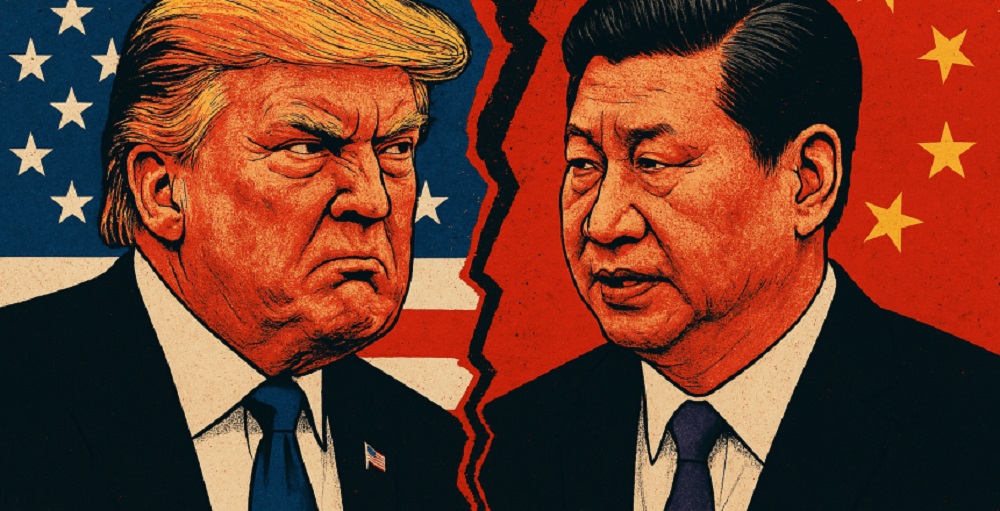Watan-American writer David Ignatius warned that President Donald Trump’s “aggressive” trade policies are effectively “burning” the status of the U.S. dollar, which is facing a growing threat as the world’s reserve currency—especially as the trade war with China, the world’s second-largest economy, continues with steep tariffs.
He explained that rising tensions have alarmed investors, prompting them to sell off U.S. assets including stocks, bonds, and even the dollar itself—a clear sign of declining confidence in the U.S. economy as a safe investment haven.
Ignatius pointed out that fear returned strongly this past Thursday as markets continued to collapse after it became clear that Trump was still escalating the trade war with China. Analysts believe the markets will not stabilize unless Trump sends a clear signal of willingness to negotiate with Beijing.

He also noted that even the president admitted that markets were “getting nauseous” from recent developments despite efforts by Trump’s advisors to downplay the turmoil. This growing anxiety is now seen as a clear sign of a gradual global shift toward “de-dollarization”—a reduction in reliance on the U.S. dollar in reserves and international transactions.
He cited data showing that the dollar’s share of global central bank reserves has dropped from over 70% in 2000 to under 60% in recent years, as more countries turn to gold and alternative currencies like China’s renminbi (yuan).
Ignatius highlighted that the Brookings Institution identified three major challenges threatening the dollar’s dominance: the overuse of economic sanctions, the worsening U.S. fiscal deficit and public debt, and rapid developments in financial technology.
He emphasized that China is actively seeking to accelerate these shifts by developing a digital currency alternative to the dollar in cooperation with several countries, enabling transactions that bypass the U.S.-dominated SWIFT global payment system. Although some experts caution against fully relying on a digital currency controlled by an authoritarian state, the trend toward diversifying payment tools and reducing dependence on the dollar is clear.
Ignatius concluded that if the Trump administration continues to pursue erratic and provocative policies, it could gradually erode confidence in the dollar—threatening its central role in the global economy.
